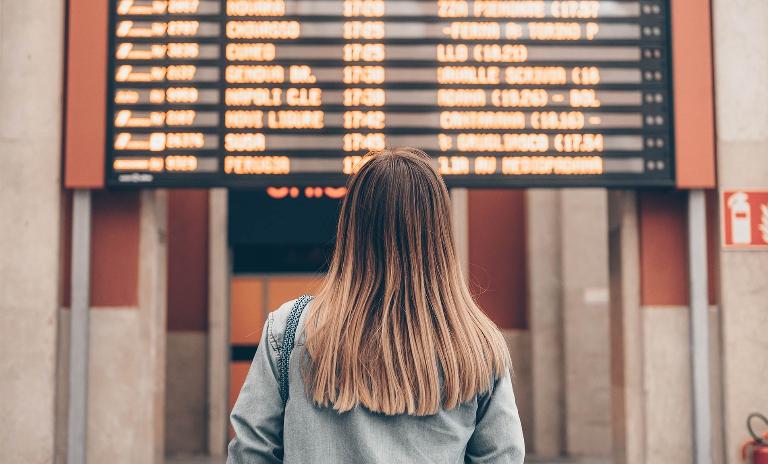Automotive & Commercial Vehicles
Elevate your business with our automobile consulting services. We provide expert advice, tailored for industry professionals seeking efficiency.


The coronavirus outbreak had a profound effect on the way humans travel, especially across long distances. With ongoing closures and heavily restricted international borders, much of the world is still off limits to a large portion of the population.

In fact, total air traffic plummeted by 66% globally last year, according to the International Air Transport Association. Road and rail travel were slightly more resilient, but still experienced a 30% drop in participation, when compared to 2019 levels.
Granted, private sector travel — including both leisure and visiting friends and family — has recovered faster than business travel. This is driven largely by domestic markets, especially in China and USA, followed by Europe. But a full recovery of private sector travel in these three major regions is several years out, according to experts.
"All told, we do not expect a full recovery of pre-pandemic leisure air travel in Europe until 2025."
Although demand for private travel noticeably increased in 2021, customers from Europe, China, and the US are still hesitant to return to pre-pandemic levels of leisure travel. For example, over 40% of all respondents surveyed by Roland Berger expect to take about 10% fewer trips than before the pandemic. Once COVID related restrictions have been lifted, two thirds of that same group expect to take only half as many trips as before.
So far, the sentiment of private travel is more optimistic in America than in Europe. The former expects an overall reduction in private trips by around 14%, compared to a 20% reduction expected by Europe. In addition to pandemic concerns, however, Europeans expect to reduce private travel by an additional 5% in an effort to reduce their impact on the environment . Consequently, we expect a measurable uptick in train use within the continent, among private travelers.
That said, road and rail travel is expected to gain market share even in the US, where planes were previously used more than any other region. In fact, share of personal air travel across all modes will reduce by 6% by 2024. Meanwhile, rail will increase by 9.4% and road by 2.4%. In private domestic travel, the shift from air to other modes will remain till 2030, and air traffic will fall by 6% while train use will increase by 15%.
Although only 12% of Americans expect environmental issues to impact their travel habits, a significant number of Chinese (40%) and European (27%) travelers said they will consider CO2 emissions, in addition to pandemic health and regulations, before booking a private trip, according to the latest research.
Once all COVID restrictions are lifted, our survey indicates a 2-3% total reduction in air travel for leisure and personal travel, when compared to road and rail. Overall, private travel in China is expected to recover the fastest (as early as 2022), followed by the US, then Europe. All told, we do not expect a full recovery of pre-pandemic leisure air travel in Europe until 2025.
All in all, more than 30% of respondents worldwide stated that they will travel less than before for leisure once all travel restrictions are lifted. Visiting friends and relatives will be less impacted by this changed behavior. But the fact remains that consumer appetite for travel has been measurably reduced. This will continue for the foreseeable future, according to our survey.
Of course, there is no telling what pent-up demand may produce once travel restrictions are fully lifted. Such forecasted drops could be temporarily counterbalanced by a short-term rebound in demand as consumers “catch-up” on missed travel opportunities in the past. Only time will tell, however, how that demand will impact long-term travel past 2025.
Register now to download the full PDF discussing the impact of the corona crisis on private travelling.